Salt swimming pools have absolutely been the rage for at least the last 15 years and they aren’t going away any time soon. There are a few misconceptions about salt pools as some who don’t know may think that they are a cure-all to pool water chemistry. They of course aren’t, but I do think it’s often a good idea to have one.
With above grounds being the “red-headed stepchild” to the pool industry, a decent salt chorine generator didn’t come out for a few years prior to the original salt pool craze. There are a couple available now, so let us talk about salt pools and above ground swimming pools being salted. Well, we’re not really going to talk, but you know what I mean.
So What Is a Salt Pool Anyway?
 People don’t ask me what a salt pool is much anymore and I wish they did, because most just think they know what it is and some are wrong. A salt swimming pool is a pool that has a bunch of dissolved salt in it. This salted water goes through a device that is in-line with the pool piping. That said device then makes a small amount of chlorine using the salted water and then voila, the pool now has chlorine. As long as the device is on it’s making chlorine and sending it into the pool along with the other water coming from the filter. This is all a salt pool really is. So, although it’s a super cool invention, it’s almost exactly the same as a boring, regular, unsalted swimming pool with the exception that it can make its own chlorine. That’s about it.
People don’t ask me what a salt pool is much anymore and I wish they did, because most just think they know what it is and some are wrong. A salt swimming pool is a pool that has a bunch of dissolved salt in it. This salted water goes through a device that is in-line with the pool piping. That said device then makes a small amount of chlorine using the salted water and then voila, the pool now has chlorine. As long as the device is on it’s making chlorine and sending it into the pool along with the other water coming from the filter. This is all a salt pool really is. So, although it’s a super cool invention, it’s almost exactly the same as a boring, regular, unsalted swimming pool with the exception that it can make its own chlorine. That’s about it.
Common Misconceptions About Salt Pools
I. Salt pools don’t use chlorine
The absolute most common misconception about salt pools is that they don’t use chlorine. For some reason, people will often want to try to avoid using chlorine for their pool. More people than I want to admit actually think that by making their pool a salt pool, they are avoiding chlorine. If you read the above paragraph (and I know you did), then you know that’s impossible.
II. Salt pools feel better
OK, so maybe this isn’t a misconception for some. Some people are hypersensitive. They can feel the unusual vibrations of croaking frogs in Brazil and know that mean a hurricane is coming or something. You wouldn’t need that high level of “connection” to your environment in order to feel the salt in a salt pool, but it may be close. A salt pool needs a specific level of salt in the water in order for the generator to make chlorine and that level is about one-tenth of the salt content that exists in the average ocean. For most of us, that’s not enough salt for us to feel the difference.
I’ve heard many say how great their pool feels now that they’ve turned it into a salt pool and hey, good for them. Chances are it’s some kind of placebo effect as most “all regular” swimming pools have chlorine in them which also means there is salt in that water as well.
III. Salt pools are healthier
Salted pools would only be healthier than regular pools if they are being better maintained and better balanced. Having salt in your pool and the ability to make its own chorine will absolutely not make your pool healthier. A salt pool does make chlorine whether you forget to add it or not. So, in that case and by default, a salt pool can be healthier, because you didn’t stay on top of your pool’s chlorine needs when you didn’t have a chlorine generator (salt pool).
IV.Salt pools have less chlorine in them
Often the opposite is true. Most of the time when I test the chlorine level in a salt pool, the level is much higher than with non-salt pools. Personally, I don’t see this as a bad thing, but it is a true thing. Most people aren’t able to dial in their salt pool’s chlorine generator enough to regularly maintain a lower level of chlorine in the pool. It’s OK though as, in my opinion, a higher level of free available chlorine is fine. Combined chlorine is a different story, though, as it’s bad to have high levels of it. I’d explain, but that’s a whole other blog post.
V. Salt pools cost less to maintain
Again and in most cases the opposite is true. A salt pool does make its own chlorine which means you don’t have to buy it and that certainly does save money. Salt chlorine generators are expensive to buy and it would take years of not purchasing as much chlorine in order for you to break even and just when you do, the generator will need a new cell or something electronic and it won’t be cheap.
Anyone who tells you a salt pool costs less to maintain is either trying to sell you a generator or doesn’t know better or is bad at long-term math or all three. Don’t get me wrong. I think most people should have a salt pool, but don’t do it to save money. Do it for convenience.
On Having a Salt Above Ground Pool
Making above grounds salt pools is very common lately. It is in fact so common that retailers now sell what is called “salt friendly models”. This means that some of the parts of the pool are made of resin instead of steel or aluminum and therefore cannot corrode from the saltwater. I don’t think salt pools cause extra rusting with above grounds, but that’s another rant in another blog post (see “Will a Salt Chlorine Generator Rust Out My Above Ground Pool”). Resin parts for above grounds have come way down in price so you might as well play it safe and get a so-called salt friendly model, if you’re planning on having a salt pool. They’re usually nicer anyway.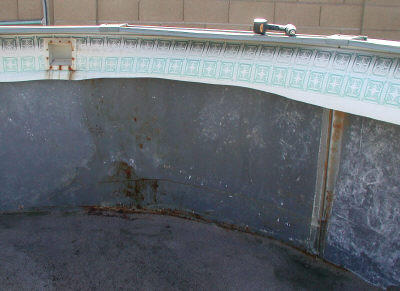
If you are going to have a salt above ground, buy a good salt chlorine generator. The cheaper ones don’t seem to work as well and certainly don’t last as long. I recommend the AquaTrol by Hayward. It’s pricey, but works well and has a legit three-year warranty directly from Hayward.
Lastly, if you are getting an above ground pool, don’t have much experience with maintaining a pool, and aren’t sure whether you want to get a salt chlorine generator, you can wait. Chlorine generators are pretty easy to install later on above grounds so you might want to see what it’s like maintaining a pool without one. You may find you don’t need one after all.





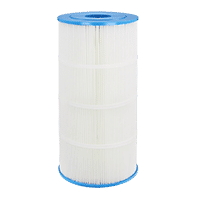
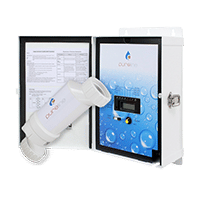
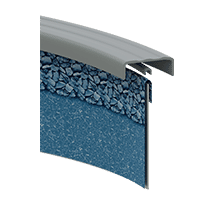
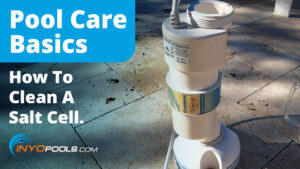



Leave a Reply